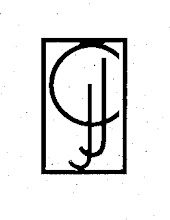 You don’t have to “believe” in climate change to realize our world is in peril. Consider this stat published in National Geographic last month:
You don’t have to “believe” in climate change to realize our world is in peril. Consider this stat published in National Geographic last month:Fifty years ago, 450,000 lions roamed the Earth. Today, their number has dwindled to 20,000.
I dare anyone to do the math and deny the tragic story behind the equation.
Acoustic biologist Katy Payne recounts in Silent Thunder her encounter one night with a low-hanging branch, which left her with a superficial but bloody head wound. The African scouts she was with began moaning—and didn’t stop moaning until they saw the next morning that she would be fine. The Shona people Payne worked with had a strong sense of bonding—of “we.” If one person hurts, everyone hurts. “If you are well, then I am well, too,” they would say.
To be stewards of our planet, we would be wise to take this Shona perspective one step further and include all elements of all ecosystems into our bonded circle. “I am well if the Himalayan black bear is well, too.”

However, as I wrote in “Closing the Book on Salt,” the Himalayan black bear is far from being well. It’s being poached for common salt, among other things.
This one problem seems easy to address in my mind. Companies usually engage in philanthropic endeavors, and one of the big salt companies could make Myanmar poaching AND mountain tribes its charitable effort: Donate iodized salt to the tribes. The people stay healthy, the animals get to live, and the big salt company balances out its destruction-by-mining business (sort of).
Of course, halting the demise of the lion populations—or of any other creature or organism in areas shared with humans—is not so easy. Solutions must be good for both wildlife AND people. As Payne writes:
“[T]he community that includes us all is larger than any of us knows, and its health reflects the quality of the relations between all of its parts. I am well if you are well. I am well only if you are well, too.”
When I saw that NG stat about lions, I thought of Rachel Carson—the pioneer ecologist who first warned the world of the dangers of pesticide use—who once said:“One way to open your e yes is to ask yourself, ‘What if I had never seen this before? What if I knew I would never see it again?’”
yes is to ask yourself, ‘What if I had never seen this before? What if I knew I would never see it again?’”
 yes is to ask yourself, ‘What if I had never seen this before? What if I knew I would never see it again?’”
yes is to ask yourself, ‘What if I had never seen this before? What if I knew I would never see it again?’” [Pics of lions and elephants from the African Wildlife Foundation.]



No comments:
Post a Comment